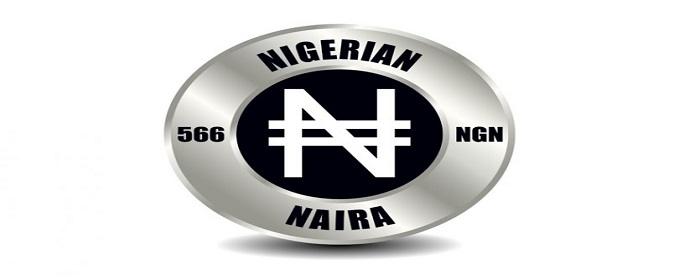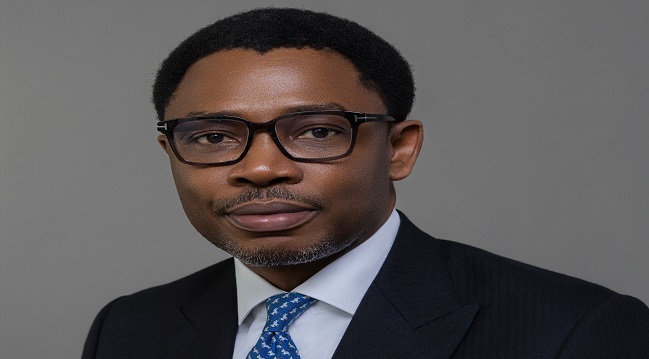E-Financial
CBN to Upgrade eNaira with Bills Payment

Central Bank of Nigeria (CBN) said, it will, before the end of this month, introduce payment of bills on eNaira, Nigeria’s digital currency.

This is in a move to step up the campaign on its digital currency.
Mr. Bariboloka Koyor, Lagos branch controller at CBN, speaking at a sensitisation campaign on the eNaira at the Kairo market in Oshodi Lagos in collaboration with Bizi Mobile, said the USSD code for the eNaira *997# has been launched to make the onboarding of more Nigerians much easier.
He noted that the eNaira wallets will before the end of this month get an upgrade which will allow for the payment of bills such as cable and electricity bills payment as well as flight bookings via the app.
“Starting from next week, there is going to be an upgrade on the eNaira speed wallet app that will allow you to do transactions such as paying for DSTV or electric bills or even paying for flight tickets. Also the USSD code *997# is out and it is just for more people to be aware of it ab=nd begin to use it.”
On the difference between the enaira and the internet banking services offered by banks, he said: “with the eNiara speed wallet, compared to the internet banking that many are used to it is fast and convenient and there is no charges.
“The enaira will be an instrument that will be used going forward by the government to disburse funds that they want to give to alleviate poverty. So the advantage is for people to onboard early. We decided to come today to sensitize the traders and business men around the market today concerning the eNaira.
“This is a project that the CBN has rolled out nation to reach out to every Nigerian in terms of financial inclusion and in terms of efficiency reliability and safety of banking transactions so that we can do banking transactions very easily an safely and the people in Nigeria can enjoy the benefit of the eNaira.
“It is a new project and the people in the market are excited about the project and accepted it and we are taking the sensitization to every where in the country.
“The e-naira is designed with the best Integrated Security Management procedure that will help to mitigate against fraud, so there won’t be any fraudulent transfers and no fraudulent alert and nobody can deceive you with e-naira transactions because it is foolproof, and we are working on it more and more.
“Also to note, it is 100 per cent local and 100 per cent global. It is made in Nigeria and for Nigerians, it can interface with any application and any banking system all over the world, both for individual transactions as well as for corporates transaction.
“The Naira is very fast for transactions and is cheap also for the diaspora remittances. If you want to receive naira ney from abroad, e-naira is there for you, very cheap, direct and it also help government to reach the people too and help you to make local payments.
“For business the e-naira is very good, easy to help you make your sales you can easily make your sells to the e- and get the payments and the issue of receiving money with fake currency or counterfeit money will not be there. Your money is intact.
“For those who have suffered from financial inclusion this is an opportunity for you e-naira is there to include everybody. And what financial inclusion is talking about is the kind of ecosystem that involves buyers, students, sellers, traders, no matter who you are, no matter how much you have, because you don’t need to have millions before you have e-naira wallet as little amount that you have you can open an e-naira wallet, and you can start sending and receiving, so it’s for everyone no matter who you are,” he pointed out.
On his part, Obinna Omeh, secretary of the Oshodi market traders, said, the eNaira will be a relief for traders as it will solve the challenge of unseen alerts, fake alerts and issues of fraud typically seen in the market.
E-Financial
FBNQuest Merchant Bank Rebrands as Quest Merchant Bank

FBNQuest Merchant Bank Limited has completed a change of name and will now operate as Quest Merchant Bank Limited, following the receipt of all required corporate and regulatory approvals.

The name change does not affect the Bank’s legal or going-concern status, management, or the nature of its business. Quest Merchant Bank Limited remains a duly licensed merchant bank, regulated by the Central Bank of Nigeria (CBN) and the Securities and Exchange Commission (SEC), and continues to deliver its full suite of merchant banking, advisory, and capital markets services to clients.
Commenting on the development, the Ag. Managing Director/CEO, Afolabi Olorode, stated: “This name change represents a pivotal milestone in the rich history of the Bank and a deliberate strategic repositioning that reflects our resilience, strong track record, and long-term growth ambitions. While our name has evolved, our commitment to our clients, stakeholders, and regulators remains unwavering.”
As part of the transition, the Bank is updating its branding, communications, and digital platforms to reflect the new name. During this period, some legacy references may remain visible across select touchpoints as updates are progressively completed.
All existing contracts, client relationships, and obligations of the Bank remain valid, binding, and fully enforceable following the name change.
E-Financial
UBA launches instant digital platform for seamless account opening across Africa, diaspora

United Bank for Africa (UBA) Plc, Africa’s leading financial institution, on Tuesday unveiled a groundbreaking instant account opening platform, revolutionising banking access for millions across the continent and diaspora communities worldwide.

UBA
The fully digital innovation, accessible at ubagroup.com, empowers prospective customers to complete account onboarding online in minutes, bypassing paperwork, branch visits, and lengthy processes that have long hindered financial inclusion. Supporting Naira and Diaspora accounts with multi-language options, the platform operates seamlessly on computers, tablets, and smartphones, catering to UBA’s diverse pan-African footprint spanning 20 countries, the UK, US, France, and UAE.
Shamsideen Fashola, Group Head of Retail and Digital Banking, described the launch as a pivotal step in democratising finance. “At UBA, we are committed to redefining the customer experience through innovation and simplicity,” Fashola said. “This fully digital solution underscores our belief that banking should be accessible, secure, and truly borderless.”
The seven-step process is intuitive: customers select “Open a Savings Account,” input their Bank Verification Number (BVN), undergo facial verification, confirm an OTP, update details, upload documents, add a digital signature, and receive an instant account number. This bridges traditional banking rigour with fintech speed, incorporating digital KYC while upholding stringent security.
Built with compliance at its core, the platform adheres to Nigeria’s Data Protection Act (NDPA) and Europe’s GDPR, safeguarding user privacy amid cross-border operations. Unlike conventional methods requiring physical biometrics, it enables immediate enrolment in UBA’s digital channels, blending convenience with regulatory depth.
Alero Ladipo, Group Head of Brand, Marketing, and Corporate Communications, highlighted customer-centric design. “Today’s customers expect speed, convenience, and compliance without compromise,” Ladipo stated. “We have blended industry-leading digital onboarding with robust standards for a seamless experience matching global best practices.”
The move reinforces UBA’s dominance in technology-driven inclusion, serving over 50 million customers with 30,000 employees and pioneering retail, commercial, and institutional services. Analysts view it as a strategic edge over fintech rivals, accelerating Africa’s digital economy amid rising diaspora remittances and intra-continental trade.
As Nigeria and Africa push financial digitisation, UBA’s platform positions the bank to capture untapped markets, fostering economic growth through barrier-free banking
E-Financial
Kuda MFB Secures National Microfinance Banking Licence, Sets Stage for Nationwide Growth

Kuda Microfinance Bank (Kuda MFB) has received a license from the Central Bank of Nigeria (CBN) to operate as a National Microfinance Bank, which means that it can now have a physical presence across Nigeria.

Musty Mustapha, MD/CEO of Kuda MFB
With the Unit Microfinance Bank licence it held until December 2025, Kuda MFB’s physical operations were limited to a specific location. The national licence removes those geographic restrictions, allowing the bank to open customer experience centres in multiple parts of the country. It also regularises Kuda MFB’s licensing status in line with the Central Bank’s framework for microfinance banks.
According to the bank, the national licence is about regulatory alignment and operational flexibility rather than a shift away from its digital-first model, so it will continue to lead with digital banking services, offering Nigerians the convenience of making transfers and payments, saving, and accessing instant credit through the Kuda app.
Musty Mustapha, MD/CEO of Kuda MFB, said, “Securing a national microfinance banking licence is an important step for us as a regulated institution. It strengthens our relationship with the Central Bank and affirms our commitment to operating at the highest standards of compliance as we scale. While we remain digital at our core, this licence gives us the flexibility to create more physical touchpoints where customers want in-person support or engagement, allowing us to serve Nigerians across the country in whichever ways are most convenient for them.”
Subject to regulatory approval, Kuda MFB plans to open more experience centres designed for customer support and community engagement, in the style of its existing experience centre in Yaba, Lagos, where customers and the general public can speak directly with the Kuda team to get help and learn about the microfinance bank’s products and services.
Kuda MFB’s national licence does not change its existing product offerings or transaction capabilities, but it provides the regulatory backing for a nationwide presence.

 Telecom2 days ago
Telecom2 days agoPolice Bust ₦7.7bn Telecom Hack Gang, Seize 400 Laptops in Massive Fraud Swoop

 E-Financial3 days ago
E-Financial3 days agoPayPal Goes Live in Nigeria through Paga

 Broadcasting3 days ago
Broadcasting3 days agoNITDA, NBC Explore Strategic Collaboration on Digital Transformation, Media Regulation

 General News2 days ago
General News2 days agoNaira Smashes Through ₦1,400 Barrier in Official FX Rally

 General News2 days ago
General News2 days agoNCC Slaps ₦250,000 Fee on Trial Licences to Spur Telecom Innovation

 General News3 days ago
General News3 days agoFacebook Powers Connection, Creativity at African Creators Summit 2026

 E-Business3 days ago
E-Business3 days agoGold Hits Record $5,110/Ounce Amid Trump Tariff Threats, Geopolitical Fears

 Telecom3 days ago
Telecom3 days agoTikTok, Instagram Blamed in US Youth Suicide Lawsuit























